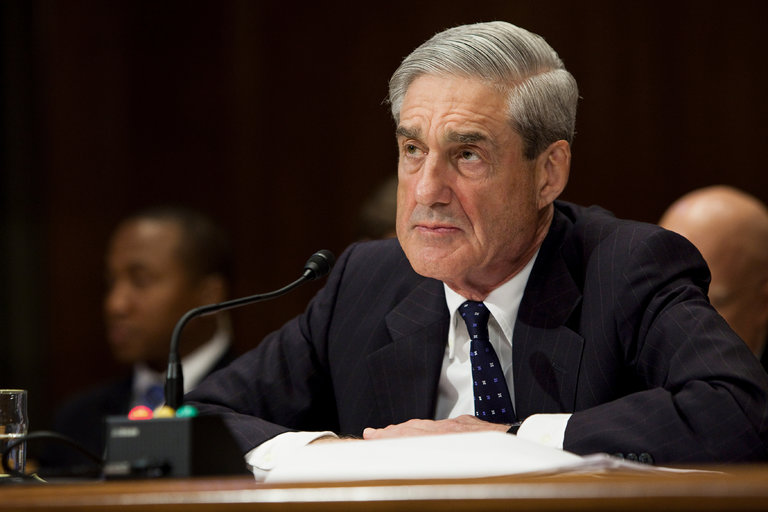The trouble with Robert Mueller

Robert Mueller just handed House Democrats enough evidence to destroy Donald Trump, whether via impeachment or via the 2020 election. Mueller also handed federal and state prosecutors the ability to indict and arrest Trump the minute he’s no longer in office, and likely put him in prison for the rest of his life. Mueller has done the honorable thing – but has he done the right thing?
Mueller says he didn’t criminally indict Donald Trump for obstruction of justice because it’s Department of Justice policy not to indict a sitting President. Fine, so be it. Except there is no such policy. There is only a forty year old stray DOJ memo which has never been tested on any level, and carries about as much precedent weight as a feather. Mueller could easily have had his grand jury indict Trump. In fact, because it would have been symbolic and wouldn’t have led to Trump being criminally tried while he was in office, there’s no doubt Mueller could have legally gotten away with doing it.
But Mueller didn’t do it because, well, you’d have to ask him. Based on his record, he’s an institutionalist and a constitutional conservative. What does that mean? Most of the time, those words are merely used as cover to let a person justify doing whatever they want. Mueller aggressively bent the law when he was taking down Enron, presumably because he felt like it. But he consistently pulled his punches when it came to Donald Trump, because for some reason he felt like it. There are very real consequences to this.
Based on various reports over the past two years from major media outlets, it appears that as many as a dozen of Donald Trump’s current and former White House advisers criminally conspired with him to obstruct justice. If so, they should be indicted, stand trial, and go to prison if the jury convicts them. But because Mueller decided not to indict Trump for felony obstruction, he couldn’t indict any of Trump’s underlings for conspiring with him on obstruction, and so justice won’t be served against any of those people. But hey, institutionalism.
Mueller also pulled his punches in stunning fashion when it came to Donald Trump’s family. According to his report, he concluded that Trump’s family members were too ignorant of the law to have had provable criminal intent when they coordinated with the Russians in various ways. But what was this based on? Best anyone can tell, Mueller didn’t even seek to interview the Trump family members he was investigating. Since when do the Feds decide that a subject of investigation didn’t have sufficient understanding of the law, without seeking an interview to determine the subject’s understanding of the law? A skeptic might argue that Mueller didn’t want to have to rock the boat by indicting Trump’s family members, so he didn’t interview them, to make sure they didn’t tell him anything that would force him to indict them.
There’s no reason whatsoever to believe that Robert Mueller had any corrupt intent when he pulled any of these punches. And we still don’t know who’s being targeted in most of the fourteen criminal cases that Mueller handed off to other federal prosecutors. It’s just that Mueller seemed to decide that, in his personal view, it would be best for the country if these indictments for obstruction and collusion weren’t brought. Then, like any institutionalist and constitutional conservative, Mueller just made up a rationale about the law to suit it.
Again, Robert Mueller has given House Democrats enough to take Donald Trump down, and he’s given federal prosecutors enough to keep the indictment machine rolling for years to come. He did his job. But you’d have to ask him why he didn’t do his job in the more aggressive manner that the law would have clearly allowed. Not that you’d expect his answer to make sense to anyone but him. Institutionalists never can seem to justify their decisions to anyone but themselves.
